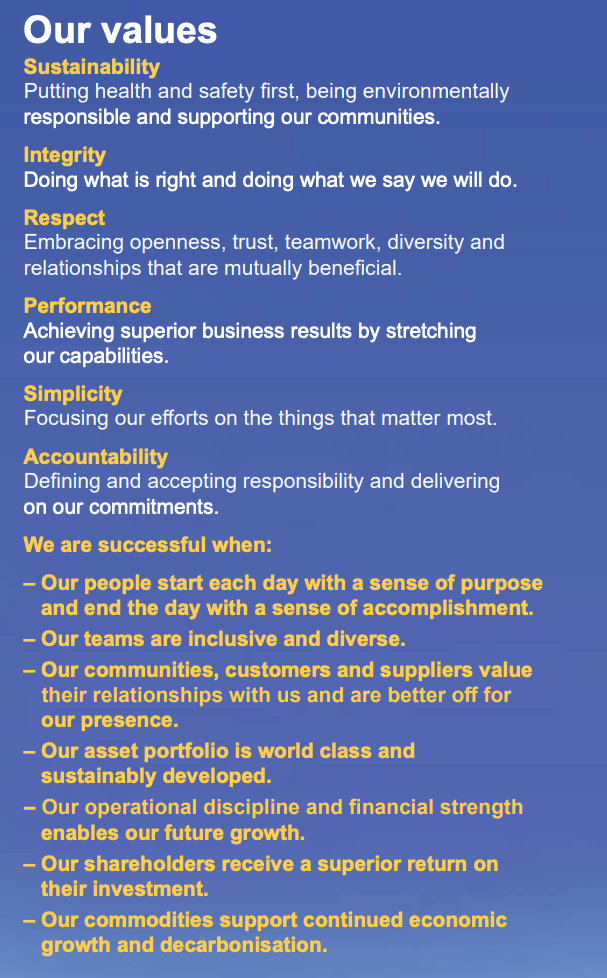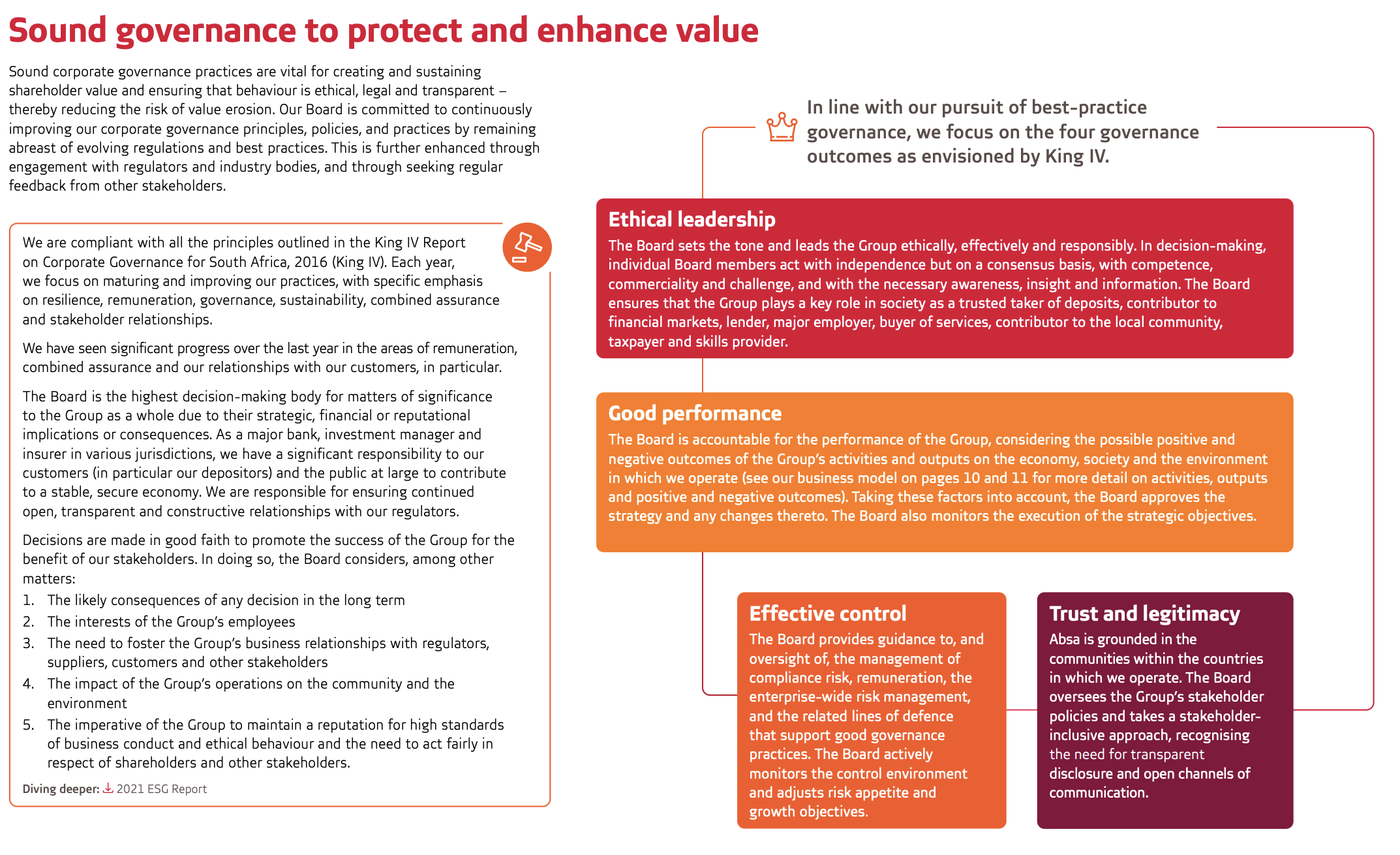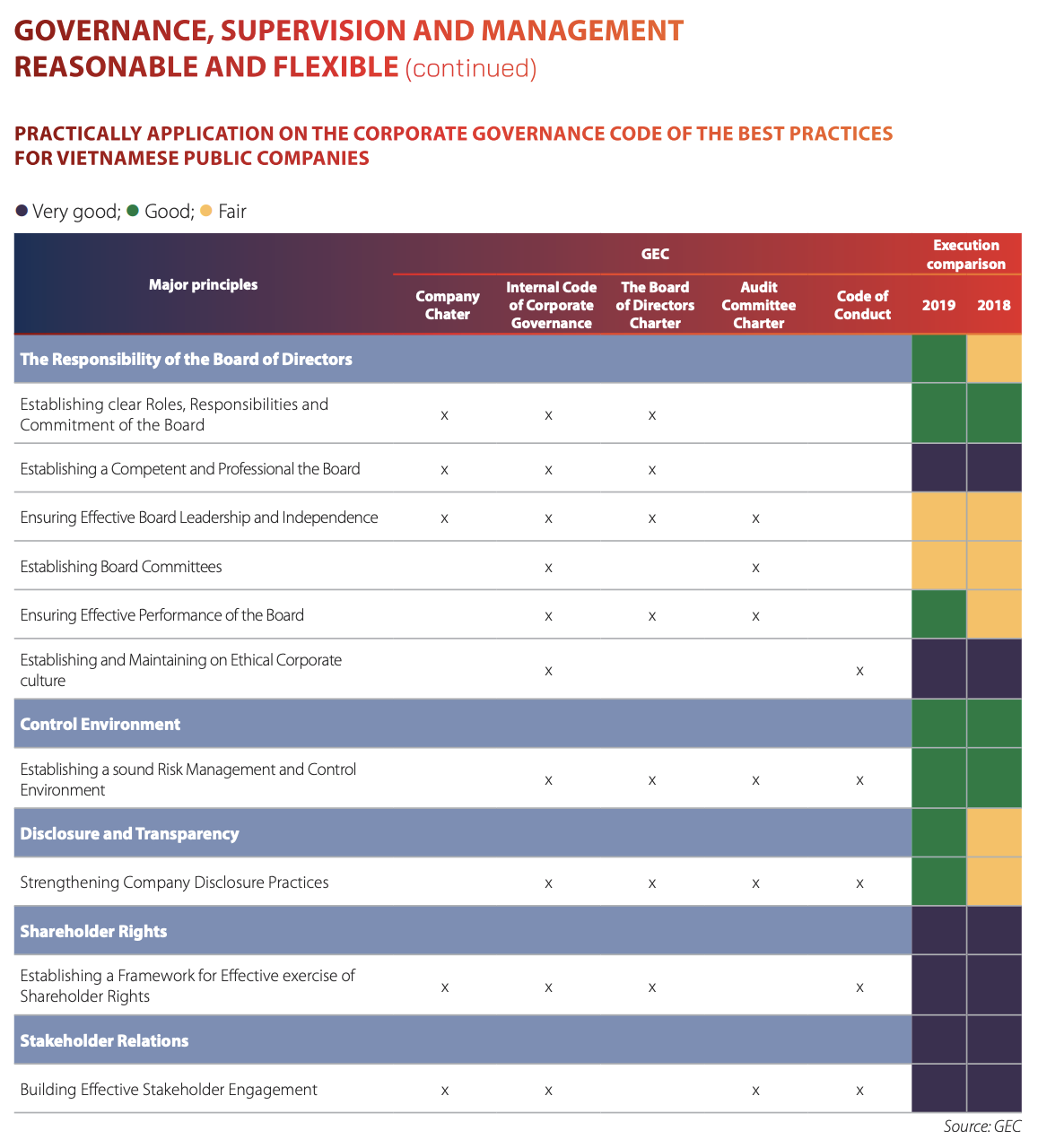Leadership and culture are the shared values, mindsets, and assumptions unique to an organization, often reflected in a company’s values statement and its code of conduct.
A commitment to sound corporate governance and the governance and management of ethical, environmental, and social issues is critical to leadership and culture.
Company stakeholders expect that boards govern and management manages sustainability-related risks and opportunities and ESG considerations which may impact a company’s operations. The company’s response to sustainability issues can compromise or enhance a company’s reputation.
Sustainability Codes and Policies
The annual report should address how the company translates its commitment to sustainability into codes, policies, strategy, practices, and performance. At a minimum, the board’s and management’s roles in overseeing or managing sustainability risks and opportunities, protecting shareholder rights, ensuring compliance with all laws and regulations (including environmental and social regulations), and managing stakeholder relations.
The report should describe the scope of the company’s codes and policies regarding corporate governance, sustainability, and ethics, such as:
- The company’s objectives and principles
- The board’s role
- Rights and treatment of stakeholders and shareholders
- Governance of sustainability and stakeholder engagement
- Consideration of sustainability issues in board decision-making, business activities, and strategy
- Compliance with environmental and social laws, regulations, and expectations
- Code of conduct for the company and its supply chain
A company’s disclosure should also describe the approval process for the code of ethics or conduct, including board approval. It should address how the company’s structure, codes, policies, strategy, and practices conform to the provisions of the country’s corporate governance code (when one exists) and to market expectations.
It is also important to include in the disclosure the details of a contact point for questions about the report or reported information.
To ensure accountability and sound management, monitoring the company’s commitment to sustainability should be supported through robust governance mechanisms (e.g., risk framework, internal controls, and audit) with dedicated resources such as a designated corporate governance officer or corporate secretary.
The report should describe the governance and management processes, controls, and procedures in place to ensure compliance with policies and codes of ethics or conduct, including the following roles of:
- A designated compliance function
- Internal audit
- External verification
International Good Practice
- The company should have a designated full-time corporate governance officer or company secretary to support its commitment to governance and sustainability.
- The report should also describe the internal control function (compliance, internal audit) and processes to ensure implementation of sustainability policies and procedures.






